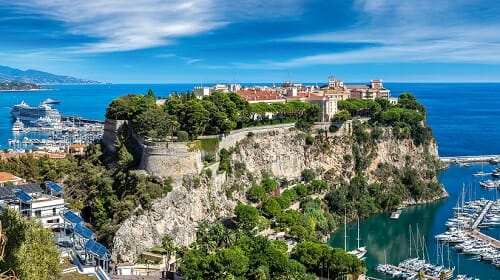Retiring to France

The following are brief extracts.
France has a reputation as a high tax jurisdiction. But France can be a tax-efficient place to live for retirees, providing you understand the tax implications of your situation and obtain specialist expat tax advice.
You are considered tax resident if your main home (foyer) is in France. You would also be considered a tax resident if you either spend more than 183 days in France during the French tax year (the calendar year), if you spend more time in France than in any other country, if your principal activity is in France, or if France is home to your most substantial assets.
Many of France’s taxes sound the same as ones you may be familiar with in the UK, but they are calculated completely differently. There are some that do not exist in the UK, such as wealth tax, and, for some, healthcare charges.
Cost of living
There are the day-to-day costs, including food, car, utility bills, rent or mortgage. There are also the long-term considerations such as how your income or pension will be affected by a change in the currency rate. Brexit has affected the value of sterling, but UK expats already experienced near parity of the euro and pound during the global financial crisis, and the pound recovered, so it may do again.
The cost of living in France – as in much of Europe – has increased dramatically in the past decade. Housing is between 70%-95% pricier in Paris than in southern cities such as Perpignan, Marseille and Nice. Transport, food and entertainment are similarly far more expensive in the capital.
Utility costs vary in France. Electricity and mains gas are cheap compared with most of the EU, but water costs are among the most expensive in the world and vary hugely from region to region. But some elements remain cheaper than in other Northern European countries, including property, food, alcohol, public transport and entertainment.
Property
In the eternally sought-after areas of the Cote d’Azur, Alps and Paris, there has been a cautious return of confidence among overseas buyers eyeing up French property. For many other areas of France, though – in particular rural areas – prices continue to fall.
After several years of falling prices – up to 40% in some regions – the strength of sterling against the euro saw British buyers re-enter the market in 2015. But the UK’s vote to leave the EU, and subsequent plunge of sterling, has put the brakes on that again.
The Cote d’Azur and the Alps top the list for British buyers with healthy budgets. But their appetite for major renovations is definitely on the wane. The new demands are for property that is ‘turnkey ready’ – and somewhere with good rental potential. That may be less relevant immediately if you are planning to live in the country, but it is still an important factor in the long-term value of your investment. This means being in a prime location, near shops, restaurants and beaches (if relevant) and within easy reach of an airport.
Healthcare
You may be as fit as a fiddle now, but it may be a different story in ten or 20 years. The good news is that the French healthcare system is regarded as one of the best in the world. Its public and private hospitals offer a similarly high standard of care, there are no significant waiting lists for operations and no fight for hospital beds.
Currently, UK citizens or retirees receiving a state pension from another EU country are entitled to a contribution from the French government of 70% of the cost of treatment. There is cheap and mandatory top-up insurance to cover the remainder.
EU citizens who retire before qualifying for a state pension can receive French social security health cover for up to 30 months, providing they obtain an E106 form from their country’s social security department.
Some non-EU citizens can receive entirely or partially free French state healthcare, depending on their country’s reciprocal social security agreements
If you are not entitled to receive free healthcare in France – you will need private health insurance. If you live in France, this will be a ‘voluntary insurance’ policy (assurance volontaire). The national health service covers the cost of all treatment for life-threatening illnesses and accidents.
- You can find much more information on retiring to France and other European destinations by going to retiringtoeurope.com. There you can download the complete 276-page guide.